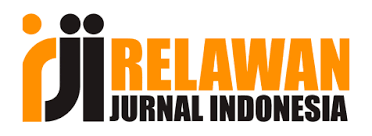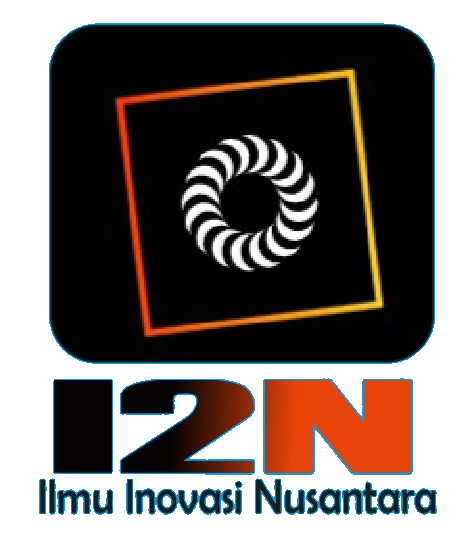Development of Moodle-Based E-Learning at LKP TIKOM
DOI:
https://doi.org/10.58557/ijeh.v2i3.96Keywords:
E-Learning, Website, Moodle, Video ConferenceAbstract
This research is a research development. It said development research because this study concluded a product that is research using the Research and Development method. This research is directed to develop E-learning media based on a Website using Moodle platform with additional Video Conference features. This research uses the Waterfall method. This Waterfall method approaches systematically and sequentially in building software. Product trials are carried out in two ways, theoretically and empirically. Theoretically, an attempt was conducted on the feasibility test for using E-learning with the assessment of media experts and assessors/students while empirically testing the product using the black box. That the development of website-based E-learning uses the Moodle platform with additional video conference features (1) Attracting course and training participants and (2) Assisting the Instructor's task in increasing competency at LKP TIKOM
References
Brambilla, M., Cabot, J., & Wimmer, M. (2017). Model-driven software engineering in practice. Synthesis lectures on software engineering, 3(1), 1-207. https://doi.org/10.2200/S00751ED2V01Y201701SWE004
Carlsson, S. A., Henningsson, S., Hrastinski, S., & Keller, C. (2011). Socio-technical IS design science research: developing design theory for IS integration management. Information Systems and e-Business Management, 9(1), 109-131. https://doi.org/10.1007/s10257-010-0140-6
Fauzi, H. (2020). Strategi Pendidikan Karakter Di Perguruan Tinggi. At-Ta'lim: Kajian Pendidikan Agama Islam, 2(1), 60-77. http://www.ejournal.an-nadwah.ac.id/index.php/Attalim/article/view/135
Kupiainen, E., Mäntylä, M. V., & Itkonen, J. (2015). Using metrics in Agile and Lean Software Development–A systematic literature review of industrial studies. Information and software technology, 62, 143-163. https://doi.org/10.1016/j.infsof.2015.02.005
Mongi, N. S., & Hendry, H. (2021). Analisis Pengembangan dan Implementasi System E-learning Untuk Meningkatkan pengetahuan Agent Menggunakan Metode ADDIE Model (Study Kasus: PT. Global Infotech Solution). Jurnal Sistem Komputer dan Informatika (JSON), 2(3), 269-276. http://dx.doi.org/10.30865/json.v2i3.2920
Mutoharoh, M., & Ambarwulan, D. (2021). Evaluation of the use of the Moodle Platform for Fundamental Physics Lectures at University. Jurnal Penelitian & Pengembangan Pendidikan Fisika, 7(2), 169-176. https://doi.org/10.21009/1.07209
Nurfaedah, N., & Nurmadina, N. (2021). Meningkatkan Keterampilan Menulis Mahasiswa Dengan Pemanfaatan Learning Management System (LMS) STMIK Handayani di Era Pandemi. Jurnal Onoma: Pendidikan, Bahasa, Dan Sastra, 7(2), 762-771. https://doi.org/10.30605/onoma.v7i2.1475
Sakinah, R. N., & Dewi, D. A. (2021). Implementasi Nilai-Nilai Pancasila Sebagai Karakter Dasar Para Generasi Muda Dalam Menghadapi Era Revolusi Industrial 4. 0. Jurnal Kewarganegaraan, 5(1), 152-167.
Siagian, H., Jade, K., & Tarigan, Z. (2020). The role of affective leadership in improving firm performance through the integrated internal system and external integration FMCG Industry. International Journal of Data and Network Science, 4(4), 365-372. https://doi.org/10.5267/j.ijdns.2020.9.002
Siahaan, A. (2016). Strategi pendidikan islam dalam meningkatkan kualitas sumber daya manusia indonesia. Almufida: Jurnal Ilmu-Ilmu Keislaman, 1(1).
Sittig, D. F., & Singh, H. (2015). A new socio-technical model for studying health information technology in complex adaptive healthcare systems. In Cognitive informatics for biomedicine (pp. 59-80). Springer, Cham. https://doi.org/10.1007/978-3-319-17272-9_4
Wardani, M. S., Nugroho, N. R. I., & Ulinuha, M. T. (2019). Penguatan Pendidikan Karakter dalam Proses Pembelajaran Bahasa Inggris. Buletin Literasi Budaya Sekolah, 1(1).
Downloads
Published
How to Cite
Issue
Section
License
Copyright (c) 2022 Mochammad Agri Triansyah, Mochamad Guntur, Diah Afrianti Rahayu

This work is licensed under a Creative Commons Attribution-ShareAlike 4.0 International License.














